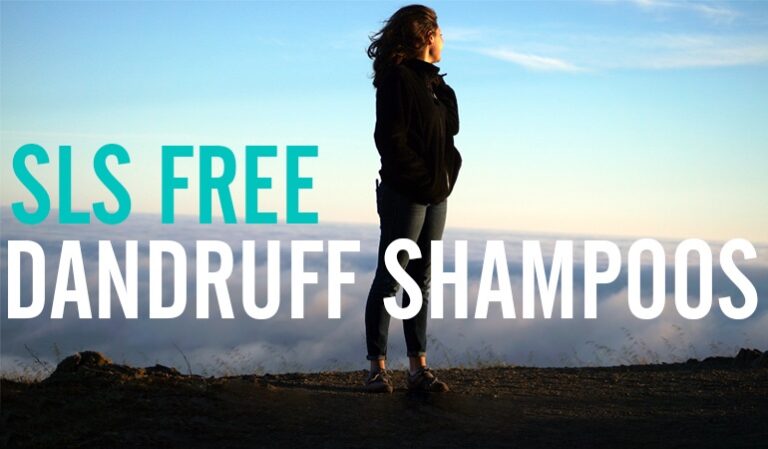Dandruff Deconstructed is reader-supported. All reviews are independent and any products reviewed are purchased by the site owner. To help fund this model, some of the links on the site are affiliate links. If you decide to make a purchase from one of these links, this site will receive some commission. At no cost to you. It helps keeps this place running. Learn more
If you’ve even a passing interest in shampoos you’d be aware that the use of sulfates in shampoos is a hugely controversial topic.
Some of the materials you’ll read are contradictory and some are misinformed. There’s a lot of misleading info. out there. The problem is that sulfates are found in most mainstream shampoos.
In this article, after speaking to four board-certified dermatologists and reviewing hundreds of dandruff shampoos, we’re going to tell you what we consider the best sulfate free dandruff shampoos on the market today.
But in addition to that, we’ll also explore the basic science of sulfates, explain what they do, how they do it, what the risks are and try to bust a few popular myths on the way. Giving you the tools you need to determine of sulfate free dandruff shampoos are for you.
The 10 Best Sulfate Free Dandruff Shampoos
After reading this and you have made the decision to avoid sulfates we have some good news for you – there are a number of sulfate/sls free shampoos about on the market now.
Here are some of our favorites.

Pharmaceutical Specialities Free & Clear Shampoo
Designed to treat Seborrheic Dermatitis, Dry Scalp and Psoriasis
Pharmaceutical Specialties formed in 1974 to “start a company to make better products than were commercially available for people with sensitive skin”. And boy, have they achieved it with this Free and Clear shampoo.
What is perhaps surprising on a website dedicated to dandruff treatments is that this isn’t a dandruff shampoo at all.
It’s rather a "a non-medicated, mild shampoo for sensitive skin and scalp.”
That said, we can’t use a medicated shampoo all the time, and this is my go to shampoo for those “between” washes.
Read the entire review

BIOM8 Skin Conditioning Oil
Designed to treat Seborrheic Dermatitis, Dry Scalp
BIOM8 Skin Conditioning Oil is now part of my daily skin care routine. It’s as simple as that. I have lost count of the number of products I’ve reviewed over the years and I can count on one hand the number of products that have impacted me on this level.
If you suffer from dry skin, facial seb derm or rosacea I simply can’t recommend this product highly enough.
It even makes a good beard oil!
Read the entire review

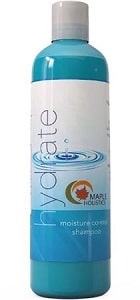
Maple Holistics Hydrate Shampoo
Designed to treat Dry Scalp
Maple Holistics Hydrate Shampoo has been superbly formulated to soothe and moisturize the scalp and hair. The ingredients have been carefully selected to decrease the chance that the product will irritate the skin. Using multiple low dose surfactants is a stroke of genius and only the fact the shampoo contains only one potential contact allergen says it all.
This is as close to perfection as you get in the commercial shampoo world.
I simply can't recommend this highly enough.
Read the entire review

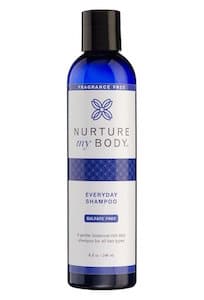
Nurture My Body Everyday Fragrance Free Shampoo
Designed to treat Dry Scalp
Nurture My Body Everyday Fragrance-Free Shampoo is an excellent gentle option for sufferers of a dry irritated scalp. The absence of any noteworthy irritants or allergens combined with the expert formulation of anti-inflammatory moisturizing ingredients makes an excellent change from the usual harsh surfactants and other toxins that lead to a vicious cycle of irritation and inflammation.
They've managed all of this in a shampoo that foams and washes well.
It's not particularly cheap, but this is simply one of the finest dry scalp shampoos out there.
Read the entire review

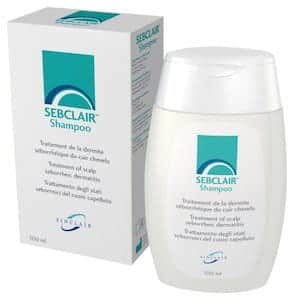
Sebclair Shampoo
Designed to treat Seborrheic Dermatitis, Dry Scalp
Calling all sensitive scalp sufferers, if you haven’t yet found an anti-dandruff shampoo your scalp can tolerate, you haven’t yet found Sebclair shampoo. A piroctone olamine, Malassezia yeast quelling formula with extremely mild yet highly effective cleansers, accompanying scalp hydrators, flake fighters and natural anti-inflammatories. No fragrance, no essentials oils, no allergens. Sebclair shampoo really does stand out in our anti-dandruff crowd.
Read the entire review

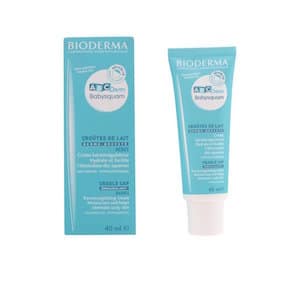
Bioderma ABCDerm Babysquam
Designed to treat Seborrheic Dermatitis and Cradle Cap
If your babe’s crusty cradle cap’s only getting worse, it’s time to try a leave on treatment – one which doesn’t leave your baby’s scalp looking like a grease ball. Enter Bioderma’s ABDderm Babysquam keratoregulating cream a 14 ingredient formula made from sensitive, hypoallergenic, moisturising, soothing and barrier building ingredients.
Useable 7 days a week with no fragrance or harsh preservatives Bioderma’s ABDderm Babysquam keratoregulating cream respects, repairs and conditions away crusty cradle cap.
Read the entire review

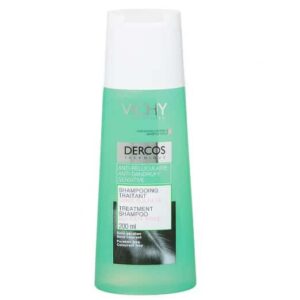
Vichy Dercos Anti-Dandruff Sensitive Shampoo [ebay affiliate link]
Designed to treat Seborrheic Dermatitis
One of the best and mildest shampoos out there for seb derm sufferers with sensitive skin.
Containing both Piroctone Olamine and Salicylic Acid as well as being SLS free, paraben free, artificial color free this shampoo has an absolutely outstanding choice of active and inactive ingredients.
There are still two or three chemicals in there that some may find irritating. Otherwise this would have been a five out of five performer.
Read the entire review

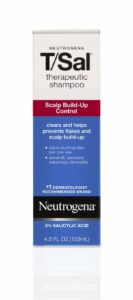
Neutrogena T/Sal Therapeutic Shampoo
Designed to treat Seborrheic Dermatitis and Psoriasis
Quite simply the best pure Salicylic Acid shampoo we’ve yet reviewed. The shampoo contains 3% Salicylic Acid combined with a fragrance free, sulfate free and virtually every other nasty ingredient free formulation. It does this and still feels luxurious when washing.
Neutrogena should be exceptionally proud of this top top class shampoo.
Read the entire review

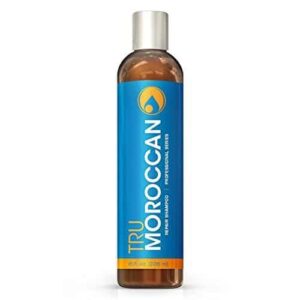
Tru Moroccan Repair Shampoo
Designed to treat Dry Scalp
An impressive dry scalp treatment shampoo with an innovative formulation.
I have to applaud any company that can formulate a shampoo with so few allergens. The fact that it washes so well is marvelous. For those not sensitive to Cocamidopropyl Betaine, Phenoxyethanol or fragrances - this is an excellent shampoo.
Read the entire review

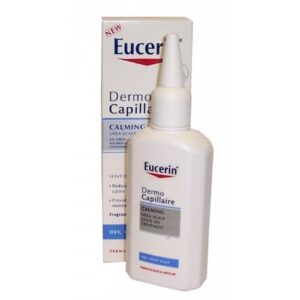
Eucerin Dermocapillaire Calming Urea Scalp Treatment [ebay affiliate link]
Designed to treat Dry Scalp
This dry scalp treatment isn’t a shampoo at all, but rather a leave on moisturizer that you apply to your hair after washing.
The advantage of this approach is that, while shampoos are designed to clean (and all the sensitizing issues that come with that) this treatment is designed to moisturize and nothing else.
You’re free to use the shampoo of your choice and us this treatment in combination.
It’s an excellent approach that I hope other manufacturers take notice of.
Read the entire review

If you haven’t seen your favorite shampoo listed, chances are we have and it can be found if you check out all our dandruff shampoo reviews.
How we chose the winners
All our reviewers are experts in product formulation, haircare, qualified pharmacists or haircare experts.
They assess the formulation of the shampoo, deconstructing the shampoos to their constituent parts and describe the key ones in detail. In addition, they highlight the presence of any one of over 100 ingredients that can potentially itch, irritate and exasperate your condition.
Unlike most review sites, our reviewers personally try every shampoo they review and they also assess how the shampoo washes, how it smells and costs. These may be medicated shampoos, but that doesn’t mean we want to compromise on a little bit of luxury!
We applied these same principles when choosing our best coal tar shampoo. For example, the winner is one of the gentlest dandruff shampoos we’ve reviewed. It’s not perfect, but compared with the others it washed slightly better and the fact that it was fragrance-free gave it another edge. That’s not to say it’s the best coal tar shampoo for you. For example, Scalp 18 shampoo contains slightly more coal tar but is fragrance heavy. They’re both outstanding shampoos, so we eventually chose the gentlest formulation.
What are sulfates?
Sulfates are used in shampoo to help remove sebum and dirt from your hair through surfactant action (they also create the foam!). These surface-active agents (surf-act-ants) wrap themselves around dirt particles, helping to wash them away. Understanding the molecular structure of sulfates is a good place to start in understanding this property.
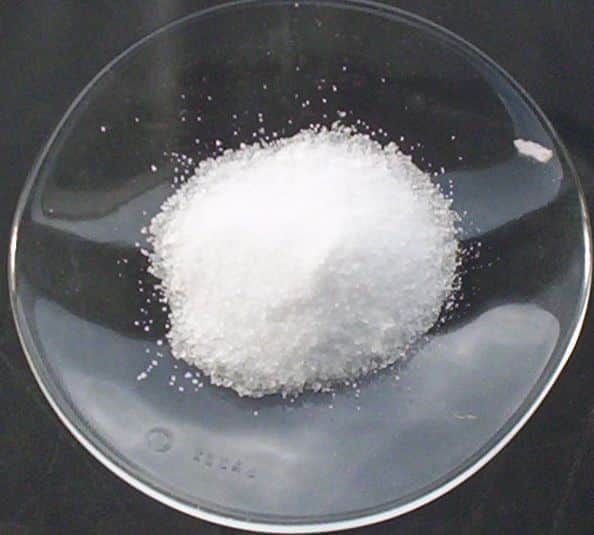
All sulfate surfactants work in essentially the same way: they are long molecular chains that don’t like water (hydrophobic), with a charged ‘sulfate’ end that loves water (hydrophilic). The long chains wrap around dirt, meaning that the water-loving sulfate end faces outwards. This makes the dirt water-soluble, and so it washes away down your drain [1].
Are all sulfates the same?
There are a number of sulfate surfactants commonly used in shampoos, but four of the most popular are:
- Sodium Lauryl Sulfate (SLS)
- Sodium Laureth Sulfate (SLES)
- Ammonium Lauryl Sulfate (ALS)
- Ammonium Laureth Sulfate (ALES)
Each of these removes dirt through the process described above, but they have different relative strengths. One way to measure the strength of a surfactant is the ‘Zein Test’ [2]. It shows that SLS and ALS are stronger surfactants than SLES and ALES – but also more irritating to the skin. You’re more likely to suffer from contact dermatitis using SLS/ALS than SLES/ALES but your hair will not be as “clean”.[3].
What are the potential risks?
The potential risks of sulfates can be a controversial topic because, for the vast majority of people, they are effectively harmless. There is no evidence that the use of sulfates in shampoos causes any systemic adverse effects in the short term or through accumulation, such as cancer, poor ocular development, cataract, or hair loss [4]. There is published evidence that if you repeatedly expose lab animals to surfactants, without rinsing them away, that long term damage is possible – but these studies clearly aren’t consistent with how shampoos are used.
This isn’t to say sulfates are harmless. They are known to cause skin irritation by damaging membrane proteins, which can be particularly harmful to those with dermatological conditions, such as psoriasis, seb derm, eczema or a dry scalp [5, 6]. Individuals with sensitive skin may experience stinging, burning, or redness with sulfates, although several studies have shown that it’s difficult to predict who will be affected [7].
Regulatory bodies in the US and EU regard sulfates in shampoos as safe, because of their low concentration and short exposure time [8, 9]. One slight exception is the European Medicines Agency (EMA), which requires pharmaceutical companies to add a warning to any medical product containing SLS due to the potential for irritation [10].
Sulfate myths
1. Sulfate-free shampoos are better for your health
The issue isn’t necessarily with sulfates, it’s with surfactants. There are many non-sulfate surfactants, but they carry the same irritant warnings while being less effective and more expensive. If you have reacted poorly to sulfate surfactants in the past, then you could consider trying the milder SLES or ALES, or an alternative such as coco-glucoside or sodium cocoyl-glycinate.
2. Sulfates are safe because they are made from coconut oil
Sulfates can be made from coconut oil, but the process isn’t a natural one. The Ziegler Process converts fatty acids to alcohols, with a methyl aluminoxane catalyst. These are then further processed into SLS (…and then into SLES using sulfur trioxide and chlorosulfuric acid) [11]. Not quite the same as extra virgin coconut oil!
3. ‘Natural’ shampoo is better for your hair
The term ‘natural’ isn’t regulated in the EU or the US, and so your shampoo could still contain synthetic surfactants. If you want to ensure that what you’re using is the most appropriate for your hair, then you’ll need to become familiar with reading the label or reviews.
Should I use sulfate free shampoos?
Sulfates surfactants used in shampoos help to remove dirt and sebum, in order to clean your hair – the primary purpose of a shampoo. There is no evidence that they cause any systemic harm, but can be an irritant to those with sensitive skin or dermatological conditions. If you’ve reacted poorly to shampoo in the past, then it’s possible that a sulfate surfactant such as SLS was to blame.
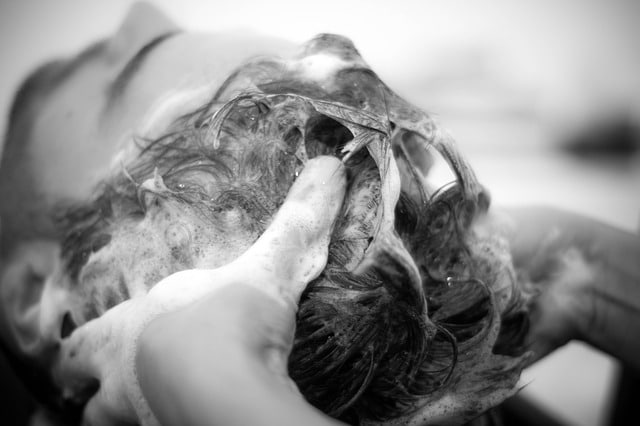
It’s widely accepted that SLES and ALES are milder alternatives to SLS and ALS, and non-sulfate surfactants like sodium cocoyl glycinate exist (although they can still cause irritation). These milder alternatives can be found in mainstream products, but unfortunately, they aren’t yet separated neatly on shopping shelves. So you’ll need to check the ingredients – or let us do it for you!
How often should I wash using a sulfate free dandruff shampoo?
With any shampoo, you should always follow the guidance provided on the label.
But this isn’t always possible, with some manufacturers omitting key information.
To get some clarity on this, we asked Dr. Ben Barankin, a Toronto based board-certified dermatologist at the Toronto Dermatology Centre, for his advice, and he told us, “For mild-moderate dandruff, I recommend daily shampooing, and ideally alternating 3 shampoos, each with active anti-dandruff ingredients.”
Regular washing is important, as Board certified dermatologist Brent Thomas Goedjen M.D., founder of Live Oak Dermatology in Roswell, GA explains further, “A common misconception is that the skin flaking of seborrheic dermatitis is a result of dryness rather than a result of inflammation. This leads patients to sometimes compensate by reducing the frequency of hair washing and attempting to rub off the scale. Unfortunately, this has the opposite of the intended effect by allowing conditions for yeast to flourish and therefore promoting the inflammation. Rubbing the inflamed skin also contributes to perpetuating the problem.”
Dr. Matthew Zirwas, board-certified dermatologist and founder of Bexley Dermatology in Bexley, Ohio, recommended trying a shampoo for, “at least a month because if your old shampoo had ingredients that were causing a dandruff-like rash of their own, it will take 4-8 weeks for that ingredient to work its way out of your body after you start the new stuff.”
And if it doesn’t work, board-certified dermatologist Adam J. Friedman, MD, FAAD, assistant professor of dermatology and director of dermatologic research, Albert Einstein College of Medicine explains via the AAD, “For most people, dandruff does not require medical attention. However, sometimes the flaking and itching that appears like dandruff is actually a medical condition, such as seborrheic dermatitis, psoriasis, fungal infections of the scalp, or eczema. If you continue to have symptoms after using a dandruff shampoo, consult a board-certified dermatologist.”
By visiting a board-certified dermatologist, you can be properly diagnosed and be prescribed stronger medication than you can pick up at the pharmacy. As Dr. Ben Barankin says, “for moderate to severe cases of dandruff, a steroid shampoo or leave-in lotion can be prescribed. A prescription ciclopirox olamine lotion is often a nice option.”
References
[1] Trüeb, R. M. (2007). Shampoos: ingredients, efficacy and adverse effects. JDDG, 5(5), 356-365.
[2] Götte, E. (1964). Skin compatibility of tensides measured by their capacity for dissolving zein protein. pp. 83-90.
[3] Broze, G. (Ed.). (1999). Handbook of Detergents: Properties. CRC Press.
[4] Bondi, C. A., Marks, J. L., Wroblewski, L. B., Raatikainen, H. S., Lenox, S. R., & Gebhardt, K. E. (2015). Human and Environmental Toxicity of Sodium Lauryl Sulfate (SLS): Evidence for Safe Use in Household Cleaning Products. EHI, 9, 27.
[5] Törmä, H., Lindberg, M., & Berne, B. (2008). Skin barrier disruption by sodium lauryl sulfate-exposure alters the expressions of involucrin, transglutaminase 1, profilaggrin, and kallikreins during the repair phase in human skin in vivo. JID, 128(5), 1212-1219.
[6] MHRA. (2013). Aqueous cream: contains sodium lauryl sulfate which may cause skin reactions, particularly in children with eczema.
[7] Farage, M. A., Katsarou, A., & Maibach, H. I. (2006). Sensory, clinical and physiological factors in sensitive skin: a review. CD, 55(1), 1-14.
[8] FDA. (2015). CFR – Code of Federal Regulations Title 21. 21CFR172.822.
[9] European Union Council. (2009). Regulation (EC) No 1223/2009. Official Journal of the European Union, L 342/59.
[10] EMA. (2015). Background review for sodium lauryl sulfate used as an excipient. 351898/2014.
[11] Klahr, E., Trieselt, W., Trapp, H., & Widder, R. (1982). U.S. Patent No. 4,349,669. Washington, DC: U.S. Patent and Trademark Office.
